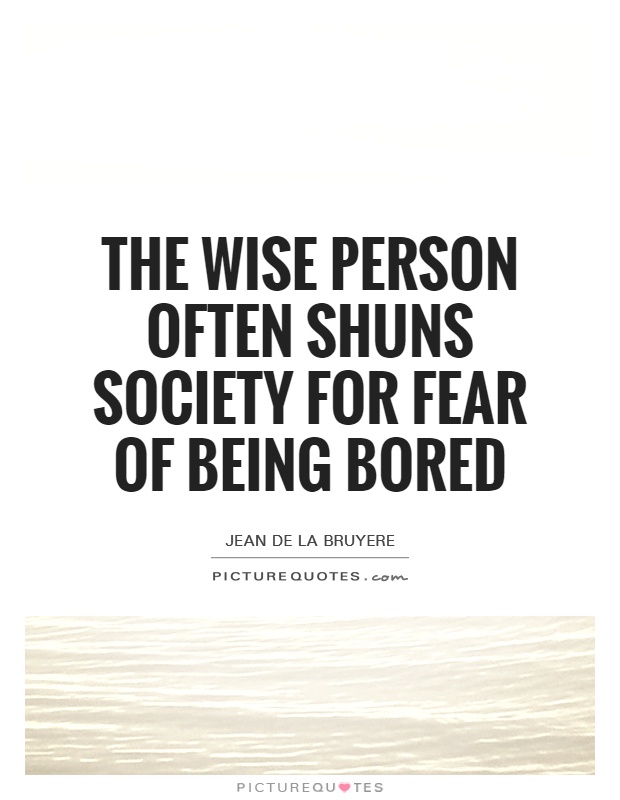The wise person often shuns society for fear of being bored

The wise person often shuns society for fear of being bored
Jean de La Bruyère, a 17th-century French philosopher and moralist, is known for his keen observations of human behavior and society. In his work, he often delves into the complexities of human nature and the various social dynamics that govern our interactions. One of the recurring themes in La Bruyère's writings is the idea that the wise person often shuns society for fear of being bored.La Bruyère believed that society, with its superficiality and trivialities, could be a breeding ground for boredom and ennui. He saw how people often engaged in mindless chatter and empty pursuits, seeking to fill the void within themselves with external distractions. The wise person, according to La Bruyère, recognizes the futility of such pursuits and chooses to distance themselves from society in order to cultivate their inner life and pursue higher truths.
In La Bruyère's view, solitude is not a sign of weakness or social ineptitude, but rather a deliberate choice made by those who value introspection and contemplation. The wise person seeks solitude not out of a fear of social interaction, but out of a desire for intellectual and spiritual growth. By withdrawing from the noise and distractions of society, they are able to focus on their own thoughts and ideas, free from the influence of others.
La Bruyère's concept of the wise person shunning society for fear of being bored can be seen as a critique of the shallowness and superficiality of social interactions. He believed that true wisdom and enlightenment could only be achieved through introspection and self-reflection, rather than through external validation or approval. By distancing themselves from society, the wise person is able to cultivate a deeper understanding of themselves and the world around them.












 Friendship Quotes
Friendship Quotes Love Quotes
Love Quotes Life Quotes
Life Quotes Funny Quotes
Funny Quotes Motivational Quotes
Motivational Quotes Inspirational Quotes
Inspirational Quotes